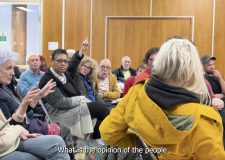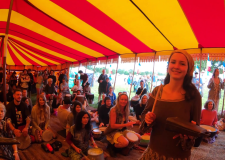Study launched to help people with cerebral palsy
A team from the University of Brighton is launching a new research project to find out more about the lives of those with the condition.
The aim of the study is to try to develop and find ways to help people get involved with positive life opportunities.
Paul Boyle is the university’s senior lecturer in occupation therapy. He wants to hear from young people who are aged between 18 and 25 who use wheelchairs all the time.
The young people taking part will be asked to write about their experiences and if they are willing to be interviewed.
Mr Boyle said he wants to find out more about the lives of young people affected by the condition as they mature from adolescence to adulthood.
Around 1 in 400 children in the UK are affected by cerebral palsy. It is one of the largest groups of people living with a disability.
The condition places heavy demands on education, health, families and social services.
Ninety percent of children with cerebral palsy reach adulthood.
Paul Boyle said: “Practitioners know that conditions such as cerebral palsy can curtail a person’s capacity to function in society due to limitations with mobility and self-initiated movement.
“Limited ability to participate or to be independent often results in a life with ongoing varying levels of disability throughout the lifespan.
“Adults with cerebral are more likely to be disadvantaged in terms of recreational activity, socialisation and employment.
“A 2013 study found young adults with cerebral palsy are functionally and socially disadvantaged compared with their non-disabled peers.
“It highlighted the need to improve arrangements for such young people.
“The study aims to explore the lived experience of transition from adolescence to adulthood for young people with cerebral palsy and in so doing throw light on what might promote positive life opportunities.”
At the beginning of this century national legislation in the UK firmly secured the right of those with cerebral palsy to be included in mainstream society.
Anyone interested in taking party in the study can contact Mr Boyle by emailing: p.boyle@brighton.ac.uk
Anyone wishing to find out more about the condition can visit: https://www.nhs.uk/conditions/cerebral-palsy/
By Clare Calder




















